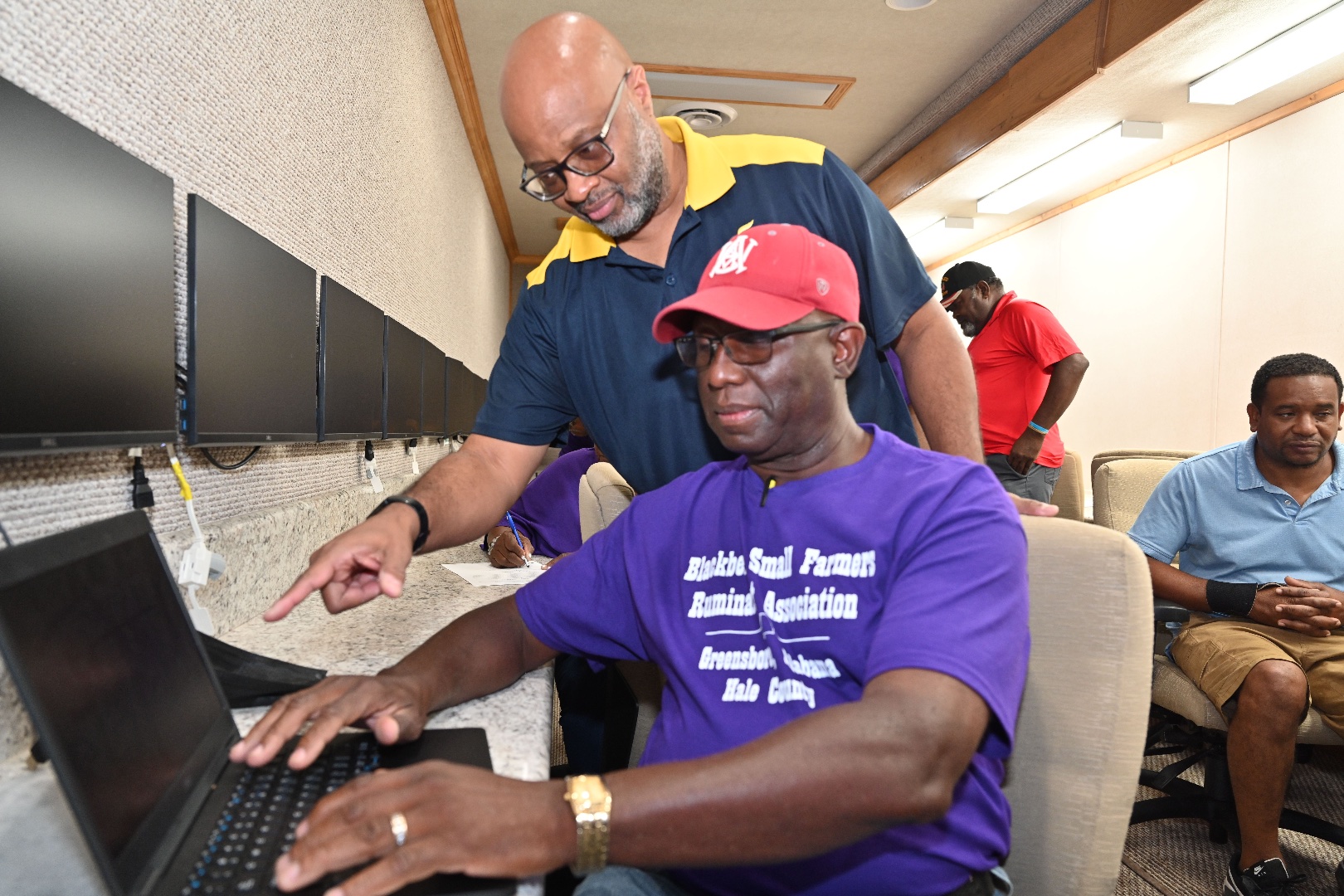Terrence Wolfork, Fort Valley State University’s (FVSU) assistant administrator of communications, conferencing and technology, is the principal investigator for a grant that will help to offer rural communities’ broadband access, adoption, and technology training. The Cooperative Extension leader shared information about the implementation of the grant and how it will help rural Georgians receive essential services.
What is the name of your grant?
The grant is called Fort Valley State University-Communi-versity: Piloting an Ecosystem for Digital Equity. It is funded by the National Telecommunication and Information Administration, (NTIA) Connecting Minority Communities (CMC) grant. It is a collaboration between FVSU Cooperative Extension, FVSU Head Start, and local community-based partners including the Peach County Public Library and the Fort Valley Youth Center of Excellence. The goal is to provide broadband access, accessibility and adoption to our local communities.
What was the amount and how long will it be funded?
The proposal is funded at $2,997,558 over a two-year period. It is a pilot project and if the project goes well, hopefully NTIA will provide additional funding.
How will the funding be spent?
We purchased some Wi-Fi hotspots which we will take to communities and offer pop-up broadband access. We will use them for multiple activities. For example, if there is a job fair occurring in a rural community, we can take the band and offer broadband access to the community. This is one of the pieces of equipment we purchased within the first year.
We are also upgrading some of our Head Start locations, specifically Macon County, so the teachers, parents and children will be able to have laptops. This will also take place at the Peach and Crawford County Head Start facilities. The grant allows for funding in communities within a 15-mile radius of the university.
How does it help you reach beyond your current position?
We currently take the Mobile Information Technology Center (MITC) out to the community, but once we leave, the community loses access. This grant allows us to offer education and provide technological devices (laptops, tablets and mobile hot spots) to members of the community. We can leave the devices at the facilities. The facility owner may have to pay for the Internet service after the grant period is over, but they will not have to pay for the equipment.
Why were Peach, Crawford and Macon Counties selected?
The communities had to be underserved and lacking broadband capability. They also had to be within the 15-mile radius of the university. Broadband access and adoption are becoming a basic need. It is the standard for completing job applications, applying for disaster assistance and getting an education. These communities have needs in employment, disaster assistance and education.
Who is involved in this grant?
We have a community advisory board that consists of local Head Start administrators, local librarians, local utility commission personnel, Cooperative Extension personnel and other local public servants in the community. It is important to have a broad spectrum of community representation to help make wise decisions and implement services. We are also incorporating Fort Valley State University students as tech navigators. Tech navigators will help train people in the community with technology education. We began training students Fall 2023 with a curriculum developed by Dr. Yolanda Surrency, FVSU’s technology curriculum specialist.
Thus far, what feedback have you received from the community?
There is a strong sense of appreciation. Currently the grant will not allow us to go outside the 15-mile radius, but we have partnered with local companies that will help us to distribute additional laptops outside of the devices paid for by the grant. We are also partnering with the Georgia Technology Authority’s (GTA) Affordable Connectivity Program. The program is designed to assist lower-income families in paying for high-speed Internet.
What made you notice the need?
I have always noticed a need for broadband access in rural communities. However, when the pandemic occurred the need increased. During the pandemic, I saw rural communities suffer and some people were not able to shop online for needed items. Many were unable to operate their businesses because they lacked Internet capabilities.
Once the grant has completed its two-year cycle will the communities lose their broadband?
We hope it continues to grow outside the funding. After the grant has finished its cycle, we still want to provide broadband awareness and adoption and educate small rural businesses about broadband capabilities.
How many people do you think you can reach?
I am estimating 200-300 students will gain experience delivering technology education to communities. We should reach nearly 1,000 people in Peach, Crawford and Macon Counties. We are partnering with the local Boys and Girls Clubs, Head Start facilities and senior citizen centers in small communities.
For more information about the NTIA grant, please contact Terrence Wolfork, FVSU’s assistant Extension administrator of communications, conferencing and technology at 478- 825-6053 or wolforkt@fvsu.edu.

